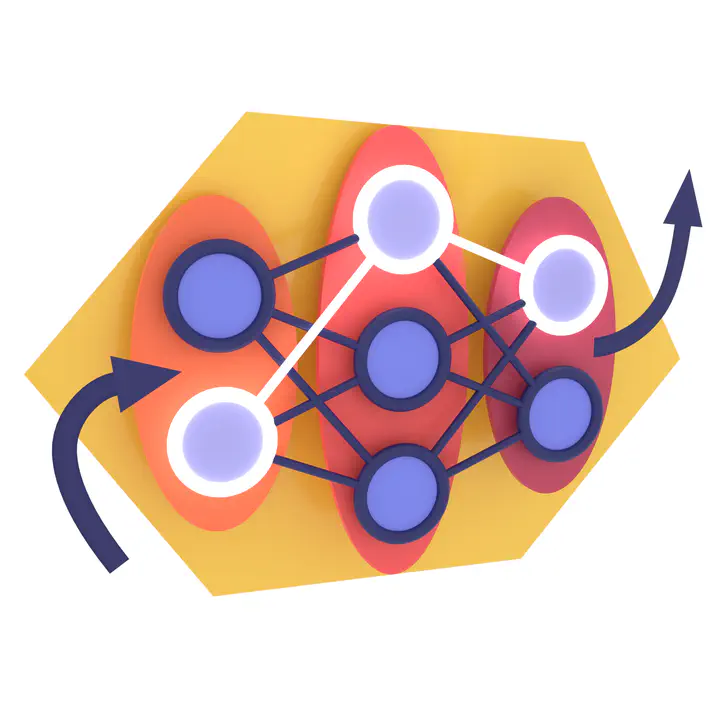Smart photonics
 Basic architecture of an artificial neural network
Basic architecture of an artificial neural networkThe ever-growing capabilities of computers, along with the development of more sophisticated algorithms, have facilitated an explosion of the use of modern machine learning techniques to solve problems of relevance in Physics and Engineering. Interestingly, artificial intelligence-based approaches can find nonintuitive solutions to long-standing issues, even when the amount of information available about the relevant systems is limited.
We are interested in using advanced machine learning approaches such as deep learning using artificial neural networks to optimise nonlinear, extreme optical processes ocurring inside confined environments. In particular, while supervised learning models may open a new era of smart fibre-based devices capable of self-adapting themselves to keep operating optimally under given conditions, unsupervised learning might facilitate the discovery of rather exotic, but viable photonic designs with unique optical properties.